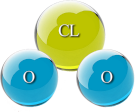Protocol E
E) ENEMAS
● Protocol E = 10 ml of CDS (0.3% = 3000 ppm) per liter of water.
This protocol is essential in cases of chronic liver disease, cancer, parasitosis, autism, and other gastrointestinal diseases. There are different types of enemas:
A. Standard evacuation enema:
10 ml of CDS is used for each liter of warm water at approximately body temperature. Intestinal irrigators usually have a capacity of approximately 2 liters. Fill the irrigator with water and add the CDS. Apply a dab of petroleum jelly to the tip of the irrigator and insert it into the rectum. The best position is lying on the right LEFT side to facilitate deep penetration of the water. Open the valve and start filling the colon. It can be done in several small batches or all at once, depending on the conditions and well-being of the person.
Attempts are made to retain the liquid for about three minutes before evacuating to increase efficacy; no more than five minutes is necessary. Depending on the degree of the disease and the patient's condition, it is usually applied up to once a day, preferably at night before going to sleep. As a general rule, it is used every two to three days for one to two weeks. There are reports of people who have used this protocol up to twice a day for a prolonged period for serious illnesses without any negative side effects. As with all protocols, it is best to tailor it to the individual. Sea water can be added: 1 part sea water + 3 parts fresh water.
Many people have found the YOGUI system very useful:
● Total: 12 enemas spread over a period of 39 days.
● 3 enemas, three nights in a row.
● 3 enemas, one every other night.
● 3 enemas, one every third day.
● 3 enemas, one every week.
Note: Although this protocol is effective, for hemorrhoids and rectal fissures or prostate problems, it may be easier to apply the R Rectal Knob protocol.
FAQ:
● Most diseases have their origin in the gastrointestinal system.
● CDS eliminates toxicity and undoes adhesions.
● If toxicity is eliminated, fatigue is reduced.
● CDS eliminates biofilm, pathogenic bacteria, candida, fungus, encapsulated fecal matter, and protozoan parasites. No negative effects on the intestinal microbiota have been observed, even in the long term.
B. EC Protocol (Slow Absorption Clinical Enema)
Unlike the evacuation enema, the enema is slow absorbing and releases CDS into the intestine for several hours, allowing the body to become more saturated. This enema is highly recommended in cases of serious illness or when intravenous methods cannot be used, providing more support to the body to restore its health.
A venoclysis set with a soft tube (e.g., urethral, nasogastric, or silicone tube) is connected to the saline bag with CDS. The flexible tube is lubricated and inserted rectally slowly and as deeply as possible, preferably to the beginning of the descending colon. The number of drops per minute is adjusted based on the patient's tolerance.
EC10: 0.5L of saline NaCl 0.9% + 10 ml of CDS at 3000 ppm. Adjustable drip dose over 6-8 hours based on patient progress.
EC20: 0.75L of saline NaCl 0.9% + 20 ml of CDS at 3000 ppm. Adjustable drip dose over 8-10 hours based on patient progress.
EC30: 1 L of saline NaCl 0.9% + 30 ml of CDS at 3000 ppm. Drip dose adjustable over 10-12 hours based on patient progress.
Its frequency is once a day using warm water, preferably at night. If CDS at 3000 ppm is not available, CD can be used (1 drop activated which is equivalent to 1 ml of CDS). DMSO is not usually used with this protocol as it can cause fecal toxins to enter the blood.
